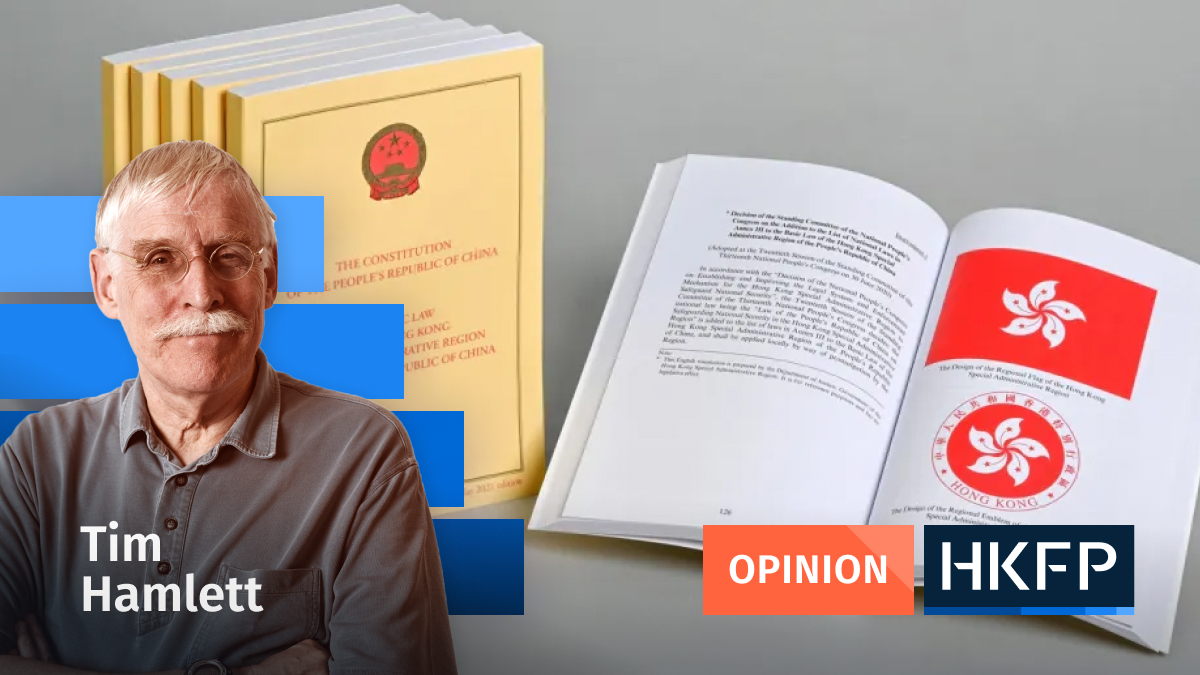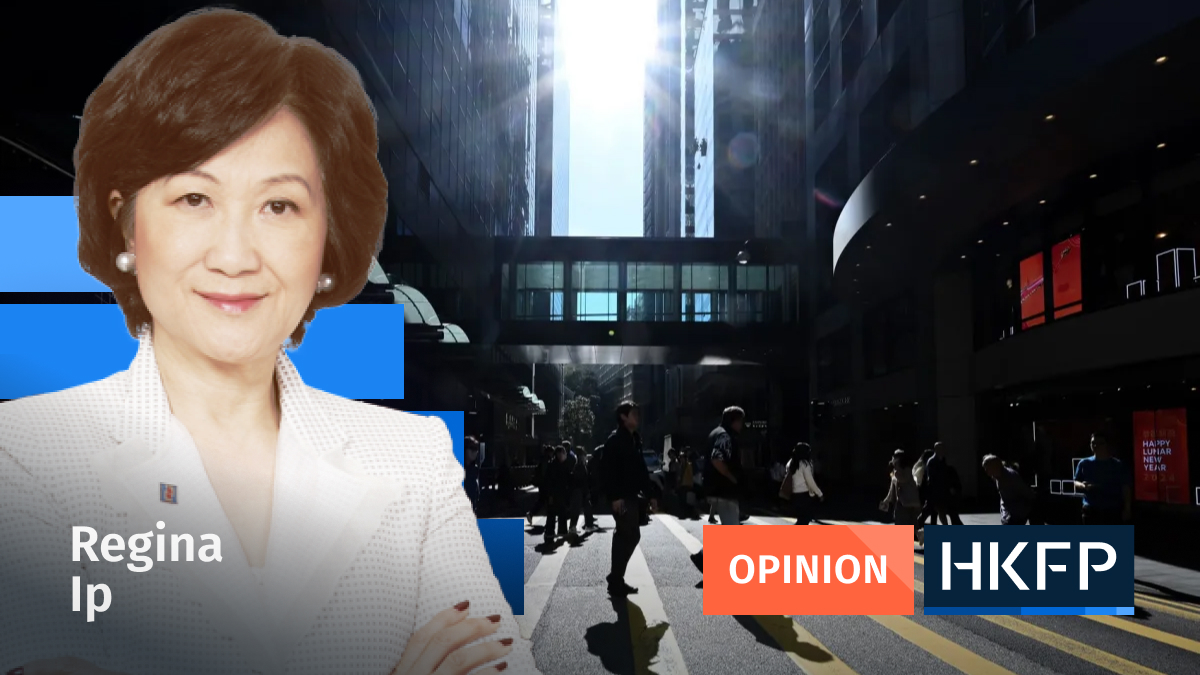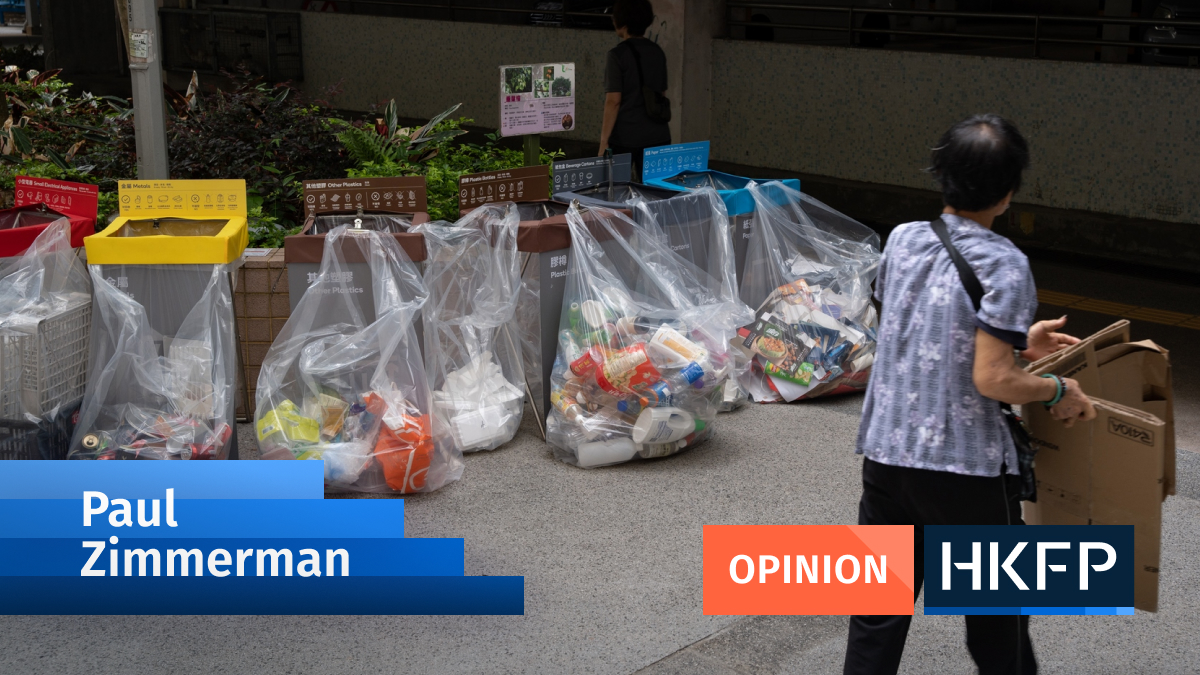Shaping public opinion is a major aim of China’s state media but its managers are finding Hong Kong a tough nut to crack. This is because most of its people – or at least a majority of those who care enough about politics to vote – have not yet fully grasped the meaning of official words and declarations. Or in the new official language, knowing the politically correct thing to say is not enough. The new political order must also be “embraced.”
Most Hongkongers, after all, are not members of the Chinese Communist Party, so pronouncements by the party-led government in Beijing are not automatically understood or accepted upon arrival here. As an alien import, the party’s way of thinking is more often either ignored or misunderstood, or – even worse – resisted.

This must change, say Chinese officials. Since there is still resistance more than two decades after the 1997 transfer from British to Chinese rule, the time to force compliance has arrived.
But Hong Kong in 2021 is not China in 1949, and the revolutionary overthrow of the established order in all its economic, political, and social dimensions is not possible here. Those upheavals that ultimately subdued all forms of mainland dissent belong to another age. The most that can be done here and now is to force compliance.
Maybe hearts and minds will follow. Or maybe they won’t. It doesn’t really matter. Beijing’s main concern is to enforce the new rules and eliminate all overt signs of resistance, both violent and non-violent. That means resistance such as the street protests of 2019, and the democratic opposition’s 2019 election victories in all but one of Hong Kong’s 18 District Councils.
The new rules were introduced on June 30, 2020 with the promulgation of the National Security Law and the arrival of mainland officials to oversee its implementation. That law’s new standards are now being introduced everywhere, but they derive from the four offences criminalised on June 30: secession from China; subversion of its government; terrorism, meaning politically motivated violence; and colluding with non-Chinese citizens as a means of political protest.

Yet despite the dramatic roll-out last year, timed to coincide with the July 1 anniversary of the handover, no one knew what the words might mean or what actions might actually constitute the four crimes. Much is still unclear because the crimes can only be defined in practice, via formal allegations, criminal proceedings, and precedent-setting court judgements. This work has only just begun.
Defining the crime of subversion
The first major case under the new law, obviously intended as an object lesson for the public at large as well as those directly involved, began Hollywood-style with dawn raids all across town that netted 53 well-known suspects. They included all the democracy movement’s most promising talents or more specifically, all those who had taken part as organisers or candidates in last year’s pre-election exercise to select pro-democracy candidates. Two additional suspects, currently in prison on other charges, were subsequently also arrested in this case, bringing the total number of those involved to 55.
Billed by the organisers as an informal primary election, It was held on the weekend of July 11-12, just days after the new security law was promulgated. Aspiring candidates and their political parties had organised the event as a means of generating public interest in the coming Legislative Council (LegCo) election by helping to winnow the field of candidates beforehand.

The idea was to let voters themselves have a say in candidate selection and try to prevent the perennial problem of too many pro-democracy candidates chasing too few seats. In order to participate, everyone had to agree to abide by the results of the poll and allow the winners to stand as the pro-democracy camp’s only candidates in the formal election. Originally scheduled for September 6, the LegCo election was postponed, ostensibly due to the Covid pandemic, and has yet to be rescheduled.
The primary was a great success — well organised at informal polling sites all over town, with volunteer poll workers, and votes cast via mobile phone after check-in at the sites. Over 600,000 voters took part, some standing in line for hours, and far more than the organisers had dared to expect.
The impact of the January 6 raiding parties was naturally wide-ranging given the community-wide nature of the targets. On the day itself, the suspects were accused by Hong Kong’s Secretary for Security, John Lee, of subverting state power due to their participation in the July primary.
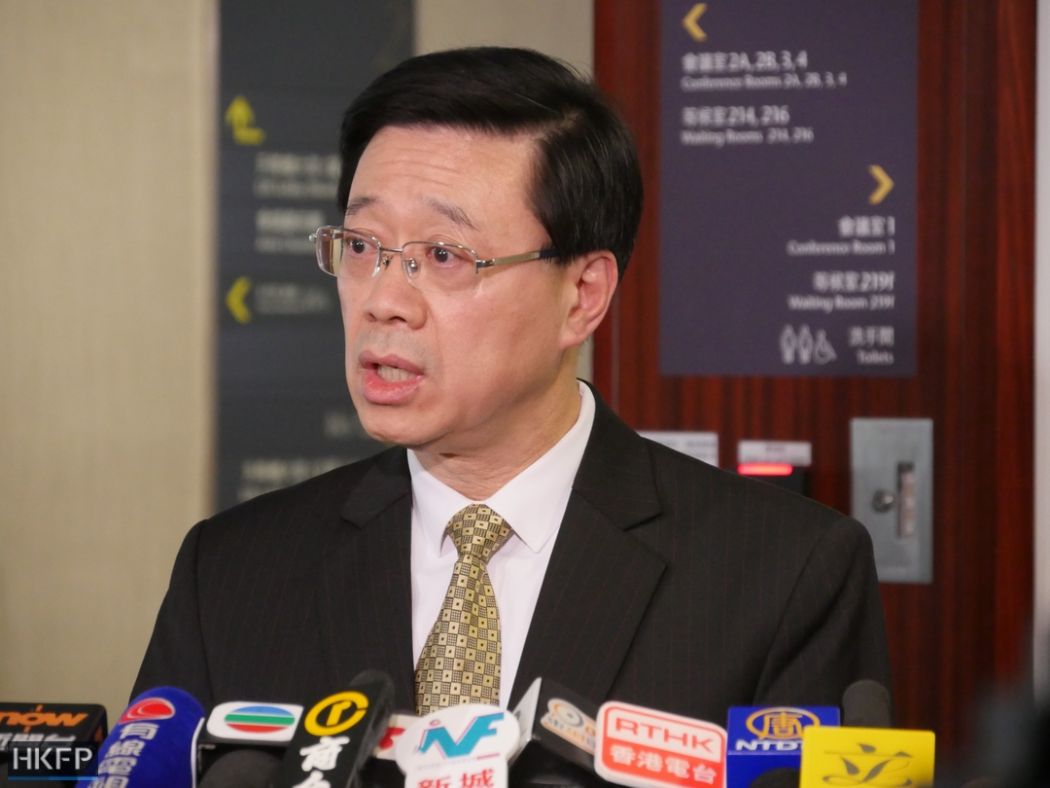
He said the police operation was targeting active elements suspected of organising, planning, and executing, or participating in, subversion. All those involved were suspected of adhering to the plan to win a majority in LegCo and paralyse the government.
But within 48 hours, they were being granted bail and all were released without charge. Even more curious, people close to the Hong Kong government publicly stated that they could not see how the informally organised poll had violated any law.
Most prominent was barrister Ronny Tong, a member of Chief Executive Carrie Lam’s advisory Executive Council. Despite his decision to cross the dividing line that separates his old pro-democracy friends from his new government colleagues, Tong was still thinking in terms of Hong Kong law.
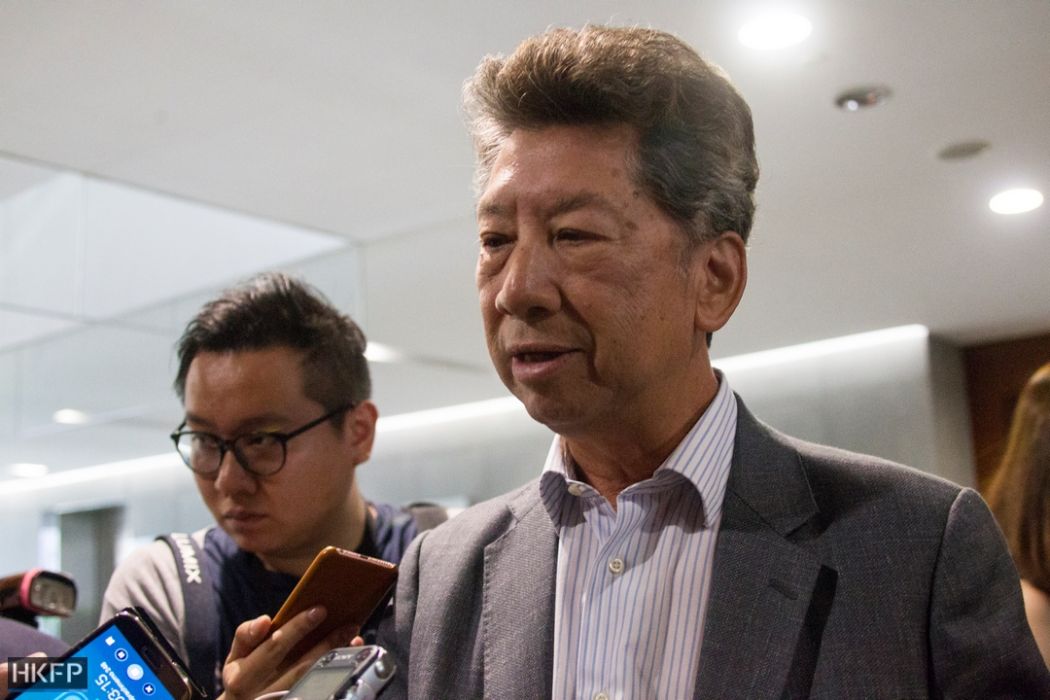
In contrast, retired top judge Henry Litton helped the prosecution make its case by explaining just how sinister and subversive the July primary had actually been. Litton is now speaking in his new self-declared role as a critic of Hong Kong’s old-style British-inspired common law ways in an effort, he says, to save them from extinction. He says that without reform, Hong Kong’s judiciary will eventually be absorbed within China’s party-led legal system.
The case for subverting state power
In a South China Morning Post opinion piece on January 27, Litton explained how the July primary election could be a crime of the first order under Hong Kong’s new National Security Law. He focused on the organisers’ intent and pointed for evidence to the Apple Daily opinion pieces written in early 2020 by Benny Tai Yiu-ting who was then still a University of Hong Kong law professor.
Writing months before the National Security Law was promulgated, Tai had outlined the sequence, speltout in Hong Kong’s Basic Law constitution, whereby the Legislative Council can veto the government’s budget and eventually force the Chief Executive to resign (Articles 50, 51, 52) . Those were the provisions, written into Hong Kong’s Beijing-drafted Basic Law, that made the proposal seem perfectly legal, according to Ronny Tong and others.

Benny Tai was chief promoter for the July primary and its 35 + tagline. This signified half the seats in Hong Kong’s 70-seat Legislative Council, or the number needed to form a majority that could perhaps make it possible to bring down the government. But he warned that promoters should brace themselves for a drastic response from Beijing should such an event actually come to pass.
The aims of the democratic majority could nevertheless be pursued, which might also make possible the reform of the electoral system. This would entail the long-sought goal of universal suffrage elections, also a possibility written into the Basic Law.
Article 68 says that the ultimate objective is a Legislative Council wholly elected by universal suffrage. Democrats have been pursuing that goal since the 1980s, even as it has continued to recede like a mirage in the desert with each passing year.

In Beijing eyes, argued Litton, this was certainly a proposal for subverting state power. He concentrated on a later more melodramatic version of Tai’s argument, from the April 28 issue of Apple Daily. Here Tai used the street protesters’ 2019 justification for violence with their battle cry “If we burn, you burn with us.” This is the version now being circulated for maximum effect in retroactively building the case against him.
Even though the new National Security Law (Art. 39) states specifically that it is not to be applied retroactively, retroactive application of intent went into effect immediately as the basis for enforcing the new national security standards.
Lest he allow himself to digress too far into the realms of speculation, however, Litton then retreated slightly and qualified his case by acknowledging that “no facts have been established but what is known seems to point to all the elements of a conspiracy to subvert state power… “A serious crime, indeed, and one requiring a “high standard of proof,” which is why investigations are continuing.

But then he moved into the realm of interpretation, chiding those who were quoting chapter and verse of the Basic Law. Rather it was a “living constitutional instrument “and according to common law principles must be interpreted in a “broad and liberal manner.” That means, not in accordance with the letter of the law but with its “true intent and spirit.” And from there it was just a short step to Beijing’s favourite refrain about maintaining Hong Kong’s “prosperity and stability.” The Basic Law should be construed in that light as well.
In conclusion, however, Litton departed far from the realms of both investigative fact and judicial interpretation — with a story line that revealed the origin of at least some of his sources. In 2014, the street-level adversarial gossip was about American bankers handing out hundred-dollar bills so activists could buy tents and camp out on the streets. That was during the Umbrella-Occupy Movement, also inspired by Benny Tai and also launched in the name of universal suffrage elections.
Litton concluded by noting that police were just beginning their investigations. There was much that remained to be revealed and many questions yet to be answered. Such as, what was it that really motivated voters to come out for the July primary?

It could only be one thing according to this line of reasoning, and he wrote his answer without trying to fact-check or corroborate it. “According to police, participants were paid substantial sums to take part.”
Probably, Beijing is none too pleased with the efforts of its Hong Kong surrogates, unfamiliar as they are with the logic and language of national security crimes. Soon after the poll last summer, the central government issued a more straightforward statement explaining the lessons Hongkongers were expected to learn. It also anticipated the events of January 6.
In its July 14 statement, the Hong Kong and Macau Affairs Office in Beijing said the informal poll was an illegal manipulation of the electoral process, designed to build momentum for the pro-democracy camp and give its candidates an unfair advantage in the coming LegCo election.
The statement also described the poll as a direct challenge to the new National Security Law and the Basic Law. Accordingly, Benny Tai was an agent working for foreign forces and an investigation into the nature of these illegalities should be conducted. They must not be allowed to stand, said the July 15 account in Ta Kung Pao newspaper.
Support HKFP | Policies & Ethics | Error/typo? | Contact Us | Newsletter | Transparency & Annual Report | Apps
Help safeguard press freedom & keep HKFP free for all readers by supporting our team
| HKFP is an impartial platform & does not necessarily share the views of opinion writers or advertisers. HKFP presents a diversity of views & regularly invites figures across the political spectrum to write for us. Press freedom is guaranteed under the Basic Law, security law, Bill of Rights and Chinese constitution. Opinion pieces aim to point out errors or defects in the government, law or policies, or aim to suggest ideas or alterations via legal means without an intention of hatred, discontent or hostility against the authorities or other communities. |

More HKFP OPINION:
HKFP has an impartial stance, transparent funding, and balanced coverage guided by an Ethics Code and Corrections Policy.
Support press freedom & help us surpass 1,000 monthly Patrons: 100% independent, governed by an ethics code & not-for-profit.




